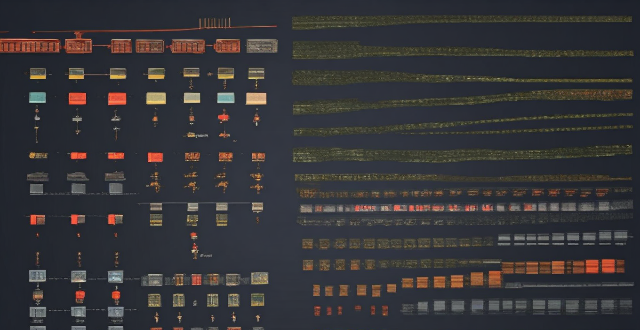Common causes of desktop computer crashes include hardware issues like overheating and faulty RAM, software problems such as outdated drivers and malware infections, user-related factors like running too many programs and improper shutdowns, and environmental influences including electrical surges and physical damage. Addressing these issues can help prevent crashes.

Common Causes of Desktop Computer Crashes
Hardware Issues
- Overheating: When a computer's internal components, such as the CPU or GPU, become too hot, it can lead to system instability and crashes. Ensure proper cooling and ventilation within your desktop case.
- Faulty RAM (Random Access Memory): If your RAM is faulty or not seated properly, it can cause unexpected crashes. Run memory tests to check for errors.
- Power Supply Problems: A failing power supply can cause intermittent crashes or even prevent your computer from turning on.
- Corrupted Hard Drive: Physical damage or corruption on your hard drive can lead to crashing issues. Regularly back up important data and consider using diagnostic tools to scan for errors.
Software Issues
- Outdated Drivers: Make sure all device drivers, especially graphics and chipset drivers, are up to date to avoid compatibility issues.
- Operating System Errors: Missing or corrupted system files can cause instability. Use system file checkers like
sfc /scannowin Windows to repair them. - Malware Infections: Viruses, spyware, and other malicious software can cause various problems including crashes. Keep your antivirus software updated and regularly scan your system.
- Program Conflicts: Some applications may not play well with others or with the operating system itself, leading to conflicts that cause crashes. Try updating or uninstalling problematic software.
User-Related Issues
- Too Many Programs Open: Running too many programs at once can overload your system's resources, causing it to crash. Close unnecessary applications to free up memory and processing power.
- Improper Shutdown: Abruptly shutting down your computer or turning it off without properly closing programs can lead to corrupted files and system instability.
- Insufficient Resources: If your computer doesn't have enough RAM or a powerful enough processor for the tasks you're trying to perform, it may crash due to resource constraints.
Environmental Factors
- Electrical Surges: Power surges from lightning strikes or faulty wiring can damage computer components, potentially leading to crashes. Use surge protectors to safeguard against this.
- Dust and Dirt: Accumulation of dust inside the computer case can cause overheating and short circuits. Regular cleaning is essential.
- Physical Damage: Dropping or otherwise physically harming your computer can result in internal damage that causes crashes. Handle your equipment with care.
By addressing these common causes, you can significantly reduce the likelihood of experiencing desktop computer crashes.